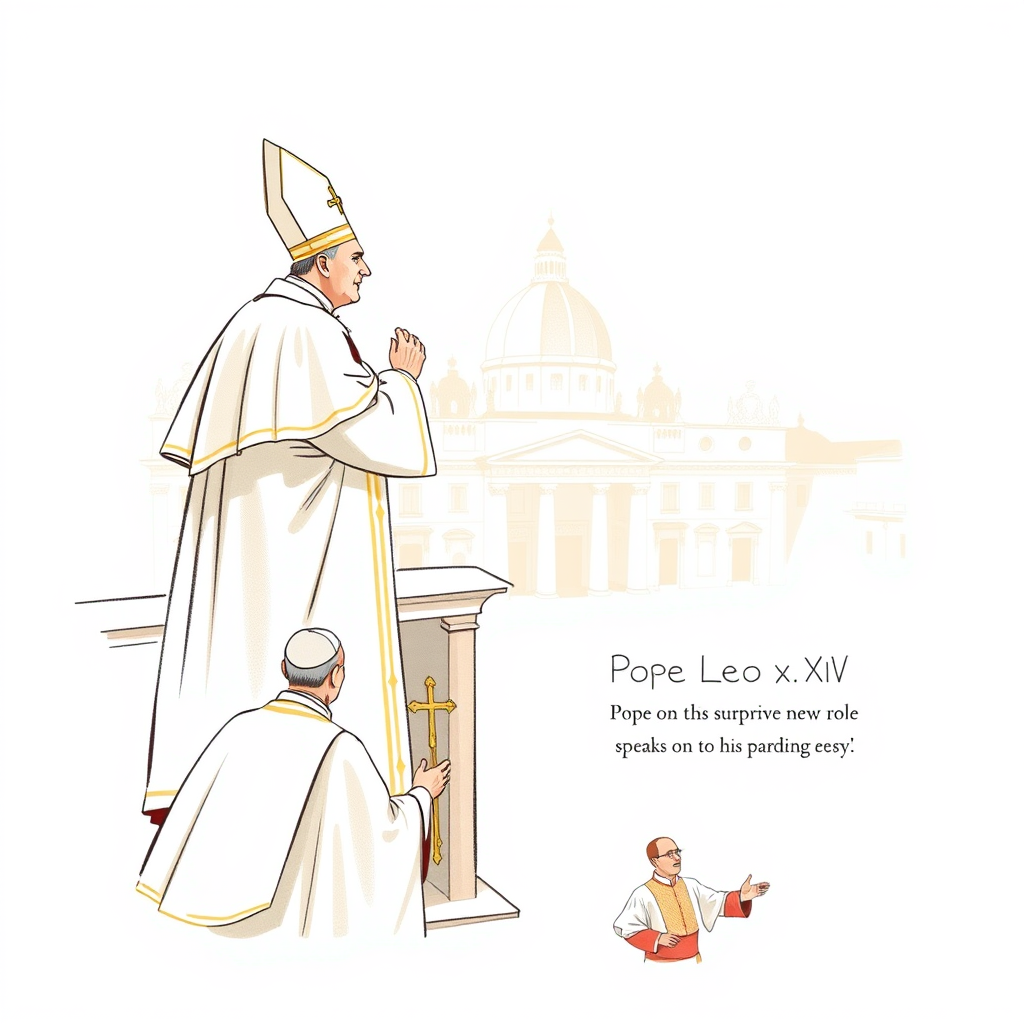Pope Leo XIV Speaks on His Surprising New Role

On Thursday, May 8, Robert Francis Prevost, now Pope Leo XIV, etched his name in history as the first American to ascend to the papacy. The Chicago-born missionary, who has dedicated much of his life to serving in Peru, addressed the jubilant crowd from the balcony of St. Peter’s Basilica, speaking fluently in both Spanish and Italian. The following morning, Pope Leo presided over his inaugural mass, donning a white robe adorned with a gold border, a tall white miter, and clutching a gold crucifix. He delivered his first homily in English, Latin, and Italian to the cardinals who had elected him just 24 hours prior.
In his address, Pope Leo reflected on his appointment as both a burden and a privilege, acknowledging the shared responsibility of spreading Christianity in a world that often scoffs at faith. ‘You have called me to carry that cross and to be blessed with that mission,’ he said, ‘and I know I can rely on each and every one of you to walk with me as we continue as a church, as a community, as friends of Jesus, as believers, to announce the good news, to announce the Gospel.’ He cautioned against ‘practical atheism’ among Christians who view Jesus more as a charismatic leader than as the savior, and paid tribute to his predecessor, Pope Francis, highlighting his missionary zeal.
Concluding his homily, Pope Leo XIV emphasized the importance of humility in Vatican leadership and the priesthood, quoting St. Ignatius of Antioch: ‘Then I will truly be a disciple of Jesus Christ, when the world no longer sees my body.’ He urged the cardinals to step aside so that Christ may be seen and to make themselves small so that He may be known, echoing the teachings of Pope Francis.
While this mass was a private affair attended only by the 132 cardinals who elected him, Pope Leo is set to deliver an inauguration mass on May 18, which will be open to a broader audience.
In my opinion, Pope Leo XIV’s inaugural words strike a balance between humility and resolve, setting a tone that could potentially resonate with both the faithful and those who have grown distant from the Church. His acknowledgment of the challenges facing modern Christianity, coupled with his tribute to Pope Francis, suggests a desire to build upon the legacy of his predecessor while forging his own path. The emphasis on humility and community is a refreshing start, one that could help revitalize the Church’s image in an ever-changing world. However, only time will tell how his leadership will evolve and the impact he will have on the global Catholic community.